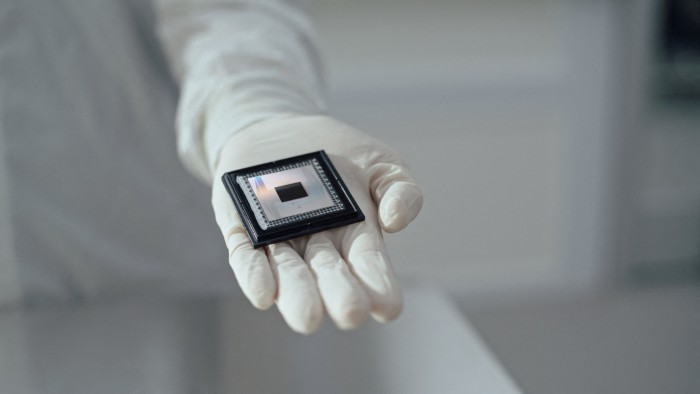Unlock the Editor’s Digest for free
Roula Khalaf, Editor of the FT, selects her favourite stories in this weekly newsletter.
The history of quantum computing has been marked by a series of breakthroughs at the frontiers of materials and computer science. Applying the principles of quantum mechanics to build computers capable of delivering almost unimaginable leaps in performance over today’s machines has preoccupied scientists for more than 40 years. For all that, practical quantum computers have remained tantalisingly out of reach. News of a breakthrough this week suggests the finish line may finally be coming into sight, potentially opening the way to the first practical machines around the turn of the decade.
Google revealed that it had managed to overcome the inherent instability in a quantum system for the first time, successfully tackling the incoherence, or “noise”, that normally overwhelms the machines as they take on larger calculations. Like the first controlled nuclear chain reaction at the University of Chicago in 1942, it was the first concrete demonstration of something that had long been predicted in theory, and a threshold moment for the industry.
Yet even as the quantum computing era starts to loom into view, it is still difficult to anticipate exactly when its effects will be felt or how sweeping they will be. Google claimed five years ago to have achieved “quantum supremacy” — the point at which a quantum computer can solve a problem that would be impossible for a classical machine. But new programming techniques showed that today’s supercomputers could remain competitive for longer than expected. Even after the quantum era finally dawns, most computing will still take place on silicon-based machines, with only the most complex, specialised tasks moving to quantum systems.
It is not yet clear how wide a range of problems will be susceptible to being tackled by this new form of computing. Quantum machines, based on the weird behaviours of tiny particles, are expected to be particularly useful for simulating nature’s own subatomic processes, opening the way to breakthroughs in fields like materials science and drug discovery.
They are also expected to quickly crack today’s most widely used encryption methods — adding urgency to what will need to be a worldwide effort to implement new forms of cryptography.
For many other things, though, it is hard to forecast how big a leap in performance the quantum algorithms that have been developed so far will bring. The degree of “quantum speedup” that will be seen in things like solving complex optimisation problems or speeding up machine learning, particularly in the early years, is still a matter of debate.
Advances in artificial intelligence may also lessen the impact of quantum computers. Demis Hassabis, the Nobel Prize winner and head of Google DeepMind, argues that it might soon be possible to use AI on a classical machine to model complex systems in nature, reducing the need for a quantum computer — a position disputed by many quantum experts.
The advance disclosed by Google this week nonetheless represents a significant moment in the long pursuit of a radical new form computing. And even if the first fruits of the quantum age are limited to relatively narrow fields, they could be world-changing.
By 2030, Google hopes to be able to build a full-scale quantum computer for $1bn. Its executives argue that even 10 times that amount would be a small price to pay for a machine that might help to cure cancer.
Lofty hopes like that have inspired researchers for decades and encouraged some of the world’s richest tech companies to make big and expensive bets on quantum computing. It may not be long before their vaunted predictions can finally be put to the test.
Read the full article here




